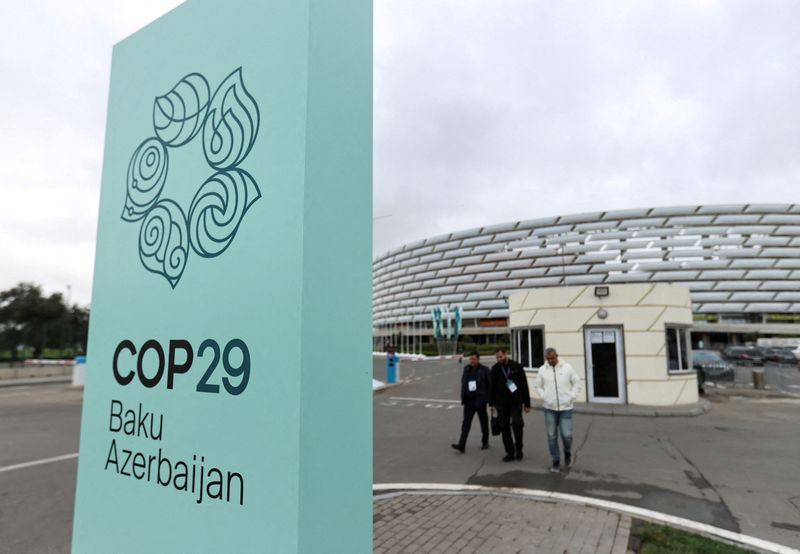Select Language

By Kate Abnett
BRUSSELS (Reuters) - The leading U.N. body on climate change is experiencing a severe budget shortfall, according to a Reuters analysis of documents from the world body - a funding gap that diplomats said could impair international climate dialogue.
The analysis found a budget hole of at least 57 million euros ($61.53 million) for 2024 - or nearly half of the funding needed for the U.N. Framework Convention on Climate Change (UNFCCC) secretariat to run annual climate negotiations among nearly 200 countries and to help implement any agreements that are made.
Budgets set out for the UNFCCC span two years. Its total 2024-2025 budget - the body's three main budget lines combined - is for 240 million euros, with about half of that expected to be allocated for this year.
The UNFCCC's member countries signed off on the budget and are expected to contribute the funds. The budget includes a core fund into which these countries are obligated to contribute, a supplementary fund drawing voluntary donations, and another voluntary fund to help diplomats from poorer countries attend U.N. climate negotiations.
While a handful of countries such as Japan and Germany have exceeded their payment obligations, others - notably the United States and China, the world's two biggest economies and the top emitters of greenhouse gases - have not yet met theirs. Contributions are due on Jan. 1 each year.
The secretariat, set up under the 1992 UNFCCC treaty, is the world's key body for coordinating international efforts to reduce climate-warming emissions and staging summits where countries can hold one another accountable.
The budget shortfall has forced it to curtail activities – from reducing operating hours at its headquarters in Bonn, Germany, to cancelling regional "climate week" events this year. Those regional summits in countries such as Kenya and Malaysia last year raised billions of dollars in investment pledges from governments, investors and philanthropies for renewable energy, reforestation and other climate-focused projects.
"We continue to work relentlessly, but our resources are increasingly over-stretched," said a UNFCCC spokesperson, who asked not to be named, in response to the Reuters analysis.
Germany's climate envoy Jennifer Morgan urged countries to find a solution.
"We need a climate secretariat that can perform its functions," Morgan told Reuters. "We're facing a massive crisis around the world."
RECORD PAYMENT DELAYS
As of this month, the UNFCCC had received 63 million euros ($68 million) in contributions for 2024.
Officials in the United States and China told Reuters the countries would make their payments this year but did not specify when. State Department spokesperson Melvin Felix said the United States "still intends to provide a substantial contribution" to support the secretariat this year. The Chinese foreign ministry said China "will fulfil its obligations as always."
As of October, the United States still owed 7.3 million euros to the UNFCCC's 2024 core budget, though it has contributed 2.5 million euros to its supplementary budget. China still owed 5.6 million euros to the core budget, though it has contributed 497,000 euros to the supplementary fund.
Even if both countries meet their obligations this year, it would not be enough to cover the hole in the UNFCCC's overall budget.

